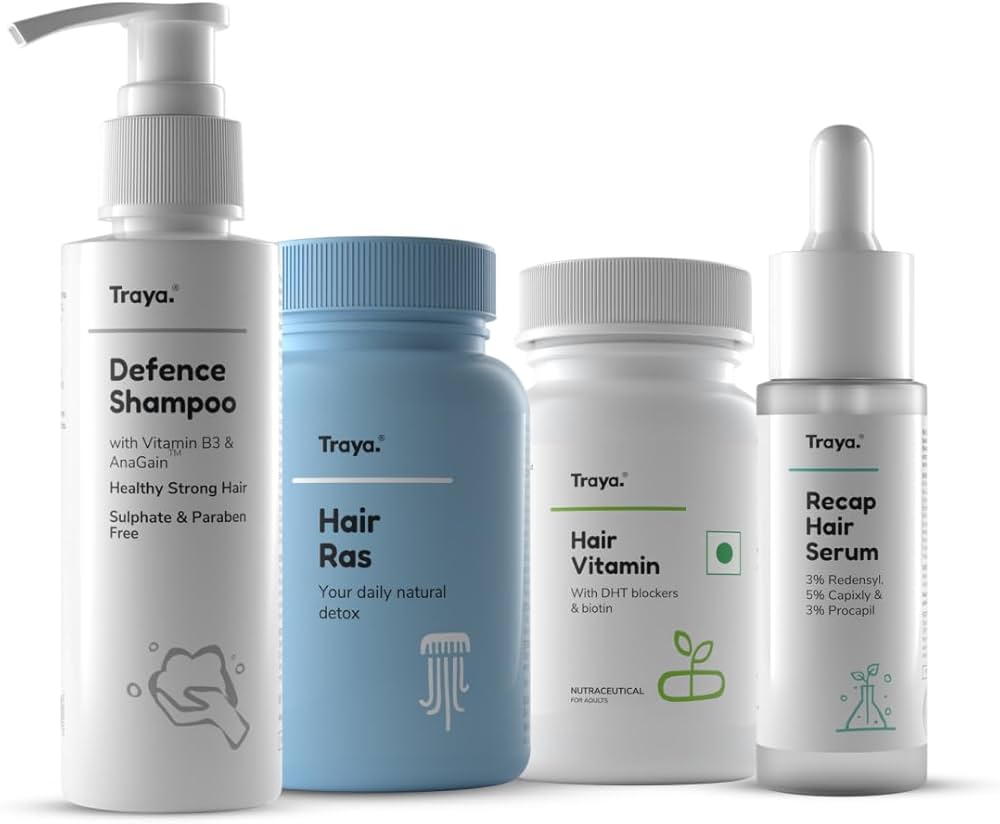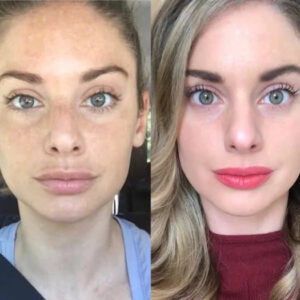
Healthy, strong hair is a reflection of overall wellness, and many people struggle with hair thinning, breakage, or slow growth at some point in their lives. While genetics, hormones, and lifestyle factors play a role, nutrition is one of the most important contributors to hair health. By incorporating the right nutrients through diet and supplements, it is possible to support hair growth naturally and improve hair quality over time.
This blog explores the key nutrients, supplements, and lifestyle habits that promote healthy hair growth, backed by scientific insights, and provides practical guidance for daily use.
Understanding Hair Growth and Why Nutrition Matters
Hair grows in cycles, including a growth phase, resting phase, and shedding phase. Disruptions in this cycle can lead to hair loss or slow growth. Nutritional deficiencies are a common but often overlooked cause of hair problems.
Essential nutrients that influence hair growth include:
- Proteins: Hair is primarily made of a protein called keratin. Adequate protein intake supports hair structure and strength.
- Vitamins: Vitamins A, C, D, and E support hair follicle health, improve circulation, and protect hair from oxidative stress.
- Minerals: Iron, zinc, and selenium are crucial for hair cell production and preventing hair loss.
- Omega-3 Fatty Acids: Found in fish oil and flaxseed, these support scalp health and reduce inflammation.
By ensuring a diet rich in these nutrients, along with targeted supplements, hair follicles receive the building blocks needed for growth, thickness, and shine.
Key Nutritional Supplements for Hair Growth
Supplements can help fill gaps in your diet and provide concentrated support for hair health. While whole foods are always preferred, supplements offer convenience and consistency, especially for those with dietary restrictions or deficiencies.
Some essential supplements for hair growth include:
- Biotin: Often called vitamin B7, biotin strengthens hair and reduces breakage.
- Collagen: Collagen peptides provide amino acids necessary for keratin production.
- Iron Supplements: Low iron is a common cause of hair thinning, especially in women.
- Vitamin D: Supports follicle cycling and overall scalp health.
- Zinc and Selenium: Promote hair growth and prevent hair loss due to nutritional deficiencies.
When selecting supplements, quality, absorption, and formulation matter. Supplements combined with a balanced diet tend to be more effective than relying on pills alone.
Combining Supplements with Lifestyle Habits
While supplements are important, optimal hair growth comes from a holistic approach. Lifestyle factors can significantly influence hair quality and growth speed.
Diet Tips for Hair Health
- Include a variety of protein sources like eggs, lean meats, legumes, and nuts.
- Add colorful vegetables and fruits for antioxidants that protect hair follicles.
- Consume healthy fats like avocados, nuts, and olive oil to support scalp health.
- Stay hydrated to maintain hair moisture and elasticity.
Daily Habits
- Reduce stress through meditation, exercise, or hobbies, as stress can disrupt hair growth cycles.
- Avoid excessive heat styling and chemical treatments that damage hair.
- Use gentle hair care products that maintain scalp balance.
For those looking to enhance their supplement regimen, seasonal offers such as Traya Health Black Friday Deals make it easier to access high-quality products that combine essential vitamins, minerals, and proteins. These products are designed to support overall hair health while targeting specific deficiencies or growth concerns. Exploring a range of supplements ensures that hair follicles get comprehensive nutritional support for optimal results.
Understanding Hair Loss Causes
Hair loss can occur due to multiple factors beyond nutrition, and understanding these is essential for effective treatment. Common causes include:
- Genetic Factors: Male or female pattern baldness is influenced by hereditary traits.
- Hormonal Imbalances: Thyroid issues, polycystic ovary syndrome, or changes in estrogen and testosterone levels can affect hair growth.
- Stress and Lifestyle: Chronic stress, lack of sleep, and poor nutrition contribute to hair thinning.
- Medical Conditions: Autoimmune diseases, anemia, and scalp infections can interfere with hair growth.
Identifying the root cause helps determine whether supplements alone will be sufficient or if additional medical guidance is required.
How to Incorporate Supplements Effectively
Consistency and timing are key when using supplements for hair growth. Some general guidelines include:
- Take supplements with meals for better absorption.
- Follow recommended dosages to avoid overconsumption, which can sometimes cause side effects.
- Pair supplements with a nutrient-rich diet to maximize results.
- Monitor progress over time, noting improvements in hair texture, thickness, and shedding.
Common Myths About Hair Supplements
There are several misconceptions around hair supplements that can lead to disappointment or misuse.
- More is Better: Overusing supplements does not speed up hair growth and can cause health issues.
- Immediate Results: Hair grows slowly, so visible changes may take a few months.
- Supplements Replace Diet: Supplements work best alongside a balanced diet, not as a substitute.
Being informed helps set realistic expectations and ensures supplements are used safely and effectively.
Additional Tips for Healthy Hair Growth
- Scalp Care: Regular scalp massages improve blood circulation and stimulate hair follicles.
- Avoid Harsh Chemicals: Limit bleaching, perming, and excessive heat treatments.
- Protect Hair from Environment: Sun, pollution, and harsh water can damage hair; use protective products when necessary.
- Regular Check-ups: Blood tests can identify nutritional deficiencies that impact hair growth, allowing for targeted supplementation.

Integrating Supplements into Daily Routine
A simple daily routine can combine diet, lifestyle, and supplements for maximum benefit:
- Morning: Take multivitamin or biotin with breakfast
- Midday: Eat a protein-rich meal with healthy fats
- Evening: Include a serving of vegetables and drink plenty of water
- Weekly: Use gentle hair care practices and massage scalp
Consistency is crucial. Over time, this holistic approach supports healthy hair growth, reduces shedding, and improves overall hair texture.
Final Thoughts
Supporting hair growth naturally requires a combination of proper nutrition, targeted supplements, and healthy lifestyle habits. Essential vitamins, minerals, proteins, and fatty acids provide the foundation for strong, shiny, and healthy hair. Supplements complement a nutrient-rich diet, while stress management, scalp care, and gentle styling practices enhance results. By adopting a consistent and informed approach, individuals can improve hair density, reduce breakage, and maintain long-term hair health.






